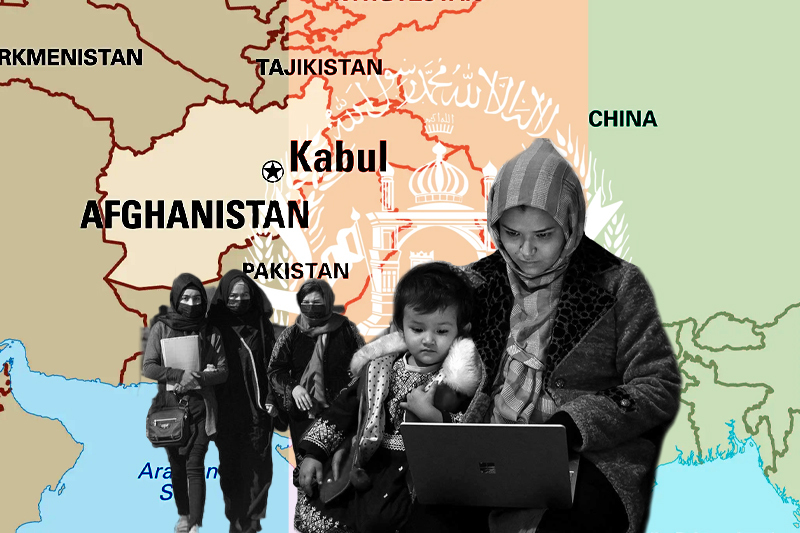

women's day and the harsh reality 'digital freedom is not for afghan women'
Women have seen many freedoms disappear since the Taliban came to power in 2021. Access to secondary education was one of the first things to go, and the Taliban banned women from going to university late last year.
There is hope for Afghan women and girls who wish to continue their education through online courses. Many universities and education institutes have developed courses and offered scholarships to assist Afghan women. Since the university ban was implemented, thousands of new applicants have applied for distance-learning opportunities from U.S.-based University of the People and U.K.-based Future Learn.
According to Gallup’s 2022 World Poll, 15% of Afghans said they have access to the internet; this figure has remained stable since 2016.
A lack of reliable electricity and IT infrastructure prevents Afghans from accessing the internet, but social norms and restrictions also skew internet access heavily in favor of Afghan men. Approximately 25% of Afghan men reported having access by 2022, compared with 6% of women. Despite a low of 2% in 2021, these figures have remained relatively stable in recent years.


It is possible to examine where Afghan women are most likely to say they have internet access by aggregating Gallup World Polls since 2019. According to the study, Afghan women living in large cities and suburbs have better access to social media — 9% versus 2%, respectively.
At 11%, women in the country’s western provinces are most likely to have access to the internet, while at no more than 6% elsewhere. Afghanistan’s second-largest city, Herat, is home to 15% of women in the western region, but only 3% of Afghan women have internet access in Kabul, the country’s capital and largest city.
A relatively small segment of the Afghan population had access to the internet before the Taliban retook control in 2021, due to infrastructure deficiencies and widespread poverty.
When the Taliban took over in 2021, access was further restricted as the regime regularly suspended connectivity in Kabul and other areas to suppress opposition, and blocked millions of websites for what it deemed “immoral” content.
Taliban officials have also recently indicated that they plan to upgrade the country’s internet network to 4G, reflecting their own dependence on the internet. Any improvement in the country’s internet infrastructure may provide additional opportunities for e-learning platforms to reach more Afghan households — and hope for girls and women without access to educational services. Although the regime will continue to restrict Afghans’ internet use to serve its own agenda.
Also Read:- Want a better work-life balance? – ‘Quiet Weekend’ is the Way
The India-UK Free Trade Agreement (FTA), recently learnt, has attracted some attention for one of its benefits enabling Indian workers…
In a notable step toward inclusive education, the Kerala government has launched the 'Jyothi' scheme to mainstream the children of…
In December 2024, the UK government issued a Technical Capability Notice (TCN) to Apple, requiring the firm to create a…
CrowdStrike Holdings Inc, an Austin, Texas-based cybersecurity company has announced it will lay off about 500 employees around the world,…
The union representing the Samsung India Workers' Union (SIWU), which is affiliated with the Centre of Indian Trade Unions (CITU),…
There has been a dramatic change in Florida's workers compensation landscape. Recent legal reforms to improve access to care and…
This website uses cookies.
Read More